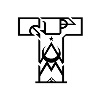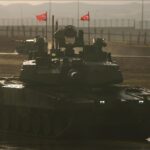Mustafa Metin Kaşlılar, Vice President of the Turkish Foreign Policy Research Center (TUDPAM), conducted an interview with Ruslan Bortnik, Director of the Ukrainian Policy Institute, where they discussed Türkiye-Ukraine relations, the Russia-Ukraine War, Black Sea geopolitics, and Türkiye’s role.
We present the interview for your consideration.
Mustafa Metin Kaşlılar (M.M.K.): Türkiye-Ukraine relations have developed on the basis of a historical alliance. What are your thoughts on the formation of this spirit of alliance?
Ruslan Bortnik: Our partnership rests on three constants: Black Sea interdependence, trade gains, and balancing among larger power centers. In recent years it has taken a practical shape: visa-free travel since 2017, strong passenger and tourism flows, and trade reaching 7.4 billion USD in 2021 and about 7.3 billion USD in 2023, with double-digit year-over-year growth in monthly exports through 2025 (for example, July 2025: Ukraine’s exports to Türkiye +45.6% y/y). This complements the FTA: Ankara ratified the agreement on 2 August 2024, and we are finalizing our procedures. A realistic target is to surpass 10 billion USD in bilateral turnover in the near term.
M.M.K.: In the aftermath of the Russian invasion, what is Türkiye’s role in Ukraine’s foreign policy?
R.B.: Ankara became the safety valve of the Black Sea. In 2022–2023, together with the UN, it facilitated and inspected the Black Sea Grain Initiative, which moved nearly 33 million tons of food by July 2023 via 1,000+ voyages to 45 countries. After the deal collapsed in July 2023, Türkiye continued mediating and, in 2024–2025, repeatedly offered to host talks on shipping security and broader de-escalation. For Kyiv, this is both a channel to the Global South and a tool to reduce escalation risks in the Black Sea.
M.M.K.: Turkish defense industry companies are present in Ukraine, particularly in the field of UAV operations. What are your thoughts on this involvement?
R.B.: Cooperation with Baykar brought scalable solutions in the TB2/AKINCI class and pushed us toward localization. In July 2023 the company began building a plant in Kyiv which, despite Russian attacks in 2025, remains on track: launch is expected in 2025, and by autumn 2024 the site was estimated at roughly 80% readiness. Baykar is one of Türkiye’s top exporters (about 1.8–2.0 billion USD in revenue, up to one-third of the country’s defense exports), which supports a resilient supply chain. Our long-game terms are joint R&D, localized components, full integration into air defense/EW, and export from Ukraine.
M.M.K.: Ukraine’s military development has significantly increased recently. Should NATO membership be addressed clearly in this context? How do you think Türkiye should position itself regarding Ukraine’s NATO membership?
R.B.: We are steadily increasing interoperability and defense-industrial capacity, but the membership issue must proceed via “managed escalation”: a clear timetable, transitional guarantees, and risk management in the Black Sea. Ankara has publicly supported our Euro-Atlantic course while emphasizing a “realistic” approach. The optimal Turkish role is to advocate sectoral integration (air defense, navy, ISR, logistics) and to support credible security-guarantee formats involving the United States, since Europe-only guarantees are insufficient for long-term deterrence.
M.M.K.: What path should Ukraine take on its way to European Union membership?
R.B.: We opened accession talks on 25 June 2024, after the European Council decision of 14–15 December 2023 and adoption of the Negotiating Framework on 21 June 2024. According to the 2024 Commission report and 2025 updates, a significant share of screening has been completed, and about a quarter of the 2024 steps directly aligned us with acquis in energy markets, environment, and regional development. My approach is simple: move by clusters, secure interim gains in parallel (customs “Schengen” for logistics, participation in integrated energy markets, digital integration), and close sensitive chapters through measurable KPIs.
M.M.K.: What are your thoughts on Türkiye not participating in sanctions against Russia following the Russian invasion?
R.B.: This is a sovereign choice rooted in energy security and geoeconomics. The result: record Türkiye–Russia trade in 2022 above 68 billion USD, high dependence on Russian energy (around 42% of gas imports in 2024, plus sizeable oil and products), and the Akkuyu NPP project (expected to generate up to 10% of Türkiye’s electricity after launch). For us, the priority is to minimize secondary-sanction risks and use this “grey zone” for humanitarian, grain, and technical corridors.
M.M.K.: Does Ukraine have a broad network of allies in the Middle East? What kind of initiatives is the Ukrainian Ministry of Foreign Affairs undertaking in this regard?
R.B.: It is expanding, albeit unevenly. We engaged at the Arab League Summit in Jeddah (19 May 2023) and convened peace consultations in Saudi Arabia (August 2023, 40+ countries). We are deepening ties with KSA, UAE, Qatar, Egypt, Jordan, Israel. The MFA advances grain diplomacy and the Grain from Ukraine initiative (hundreds of thousands of tons delivered, millions of beneficiaries in Africa). Our priorities are food security, energy investment, defense-industrial cooperation, and partner involvement in postwar reconstruction.
M.M.K.: Considering the increasing security risks in the Black Sea region, how do you evaluate Türkiye’s role? What should Ukraine’s strategy be in this context?
R.B.: By enforcing the Montreux Convention, Türkiye restricted warship transit since February 2022, stabilizing the balance. Despite persistent mine threats (100+ mines detected since 2022), insurance premia on Black Sea routes fell in 2024 as the market adapted, and Ukraine opened a temporary sovereign corridor. In the 2023/24 marketing year grain exports reached 50.4 million tons, and total cargo via the “new corridor” was estimated above 90 million tons by end-2024. Our strategy is joint safety regimes with Ankara for sea lanes, intelligence sharing, mine countermeasures, development of uncrewed platforms and coastal defense.
M.M.K.: In which areas could economic and energy cooperation between Türkiye and Ukraine develop? How would this cooperation impact regional security?
R.B.: Industry and logistics: shipbuilding and repair, container logistics, agro-processing, machinery, aviation and UAVs, IT outsourcing. Energy: use of Ukraine’s underground gas storage (total capacity up to 31 bcm; up to 10 bcm offered to non-residents in 2024) as a regional “seasonal battery,” and synchronization with Turkish gas flows TANAP/TurkStream. TANAP had transported 62+ bcm by May 2024, with current capacity around 16 bcm/year and an expansion plan to 31 bcm. Investment in these links raises the “cost of conflict” and stabilizes regional supply chains.
M.M.K.: Considering the long-term effects of the Russia-Ukraine war, what priorities should Türkiye establish in its strategic cooperation with Ukraine?
R.B.: A 10-year tripod:
- Black Sea security: uphold Montreux, joint mine-countermeasure formats, control of uncrewed activity, ship inspections, and reliable insurance guarantees.
• Technology base: launch and expand production in Ukraine (UAVs, electronics, munitions) with export potential to the EU/NATO, against the backdrop of Turkish defense exports rising to roughly 7.1–7.2 billion USD in 2024 and Baykar’s leadership among exporters.
• Managed economic interdependence: implement the FTA, lift trade above 10 billion USD, and build joint logistics corridors and energy projects. This strengthens regional resilience and reduces incentives for any party to alter the status quo by force.







